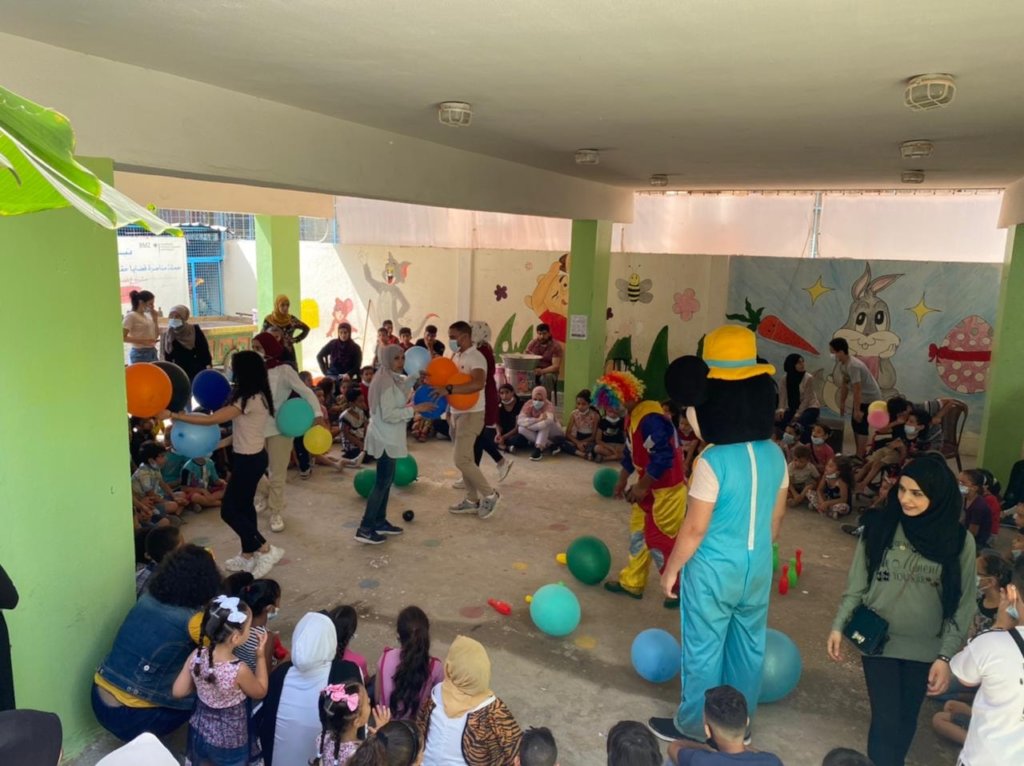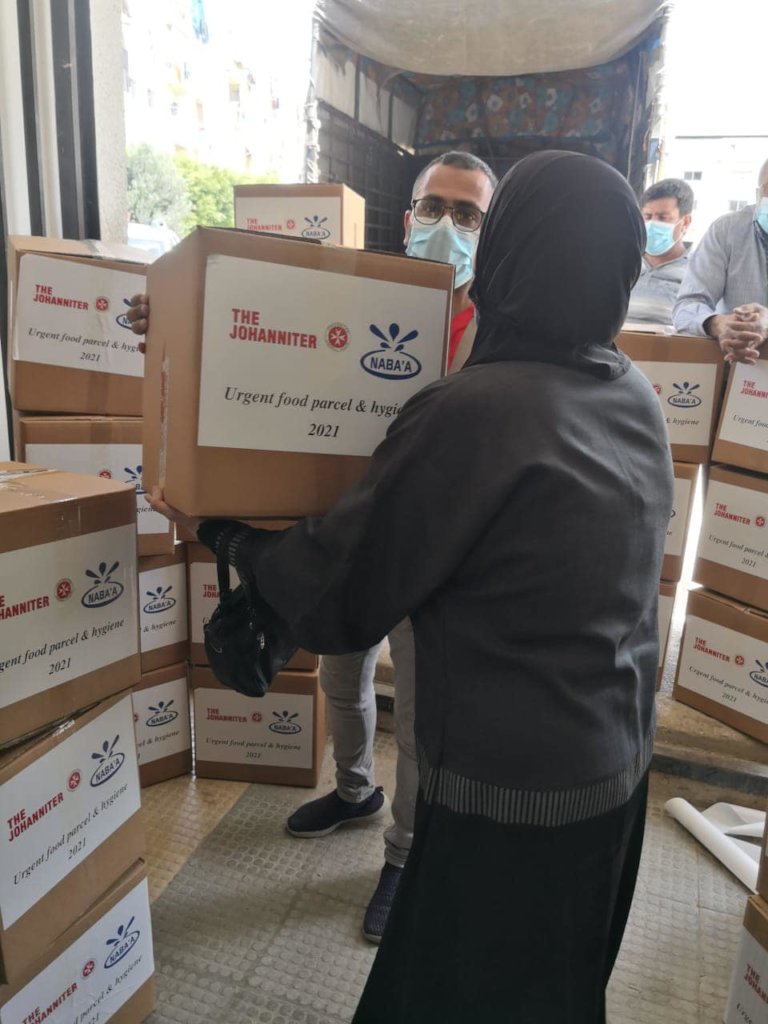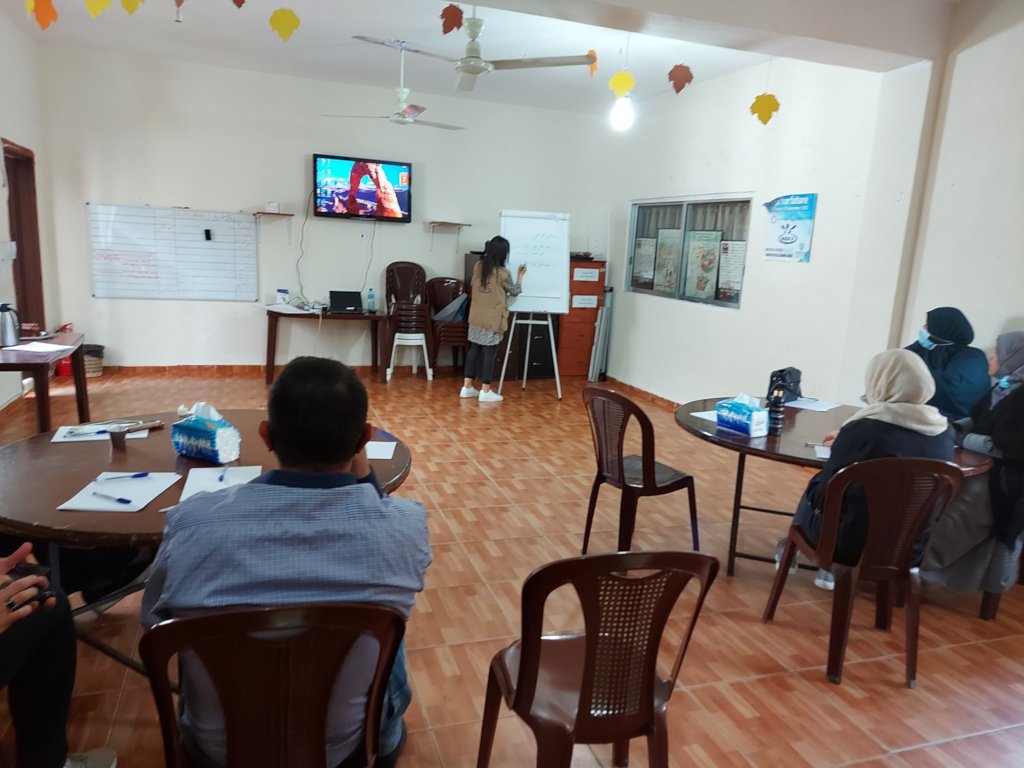By Hiba Hamzi | Program Coordinator
Background during and after the implementation of the project;
As the first anniversary of the deadly Beirut explosion approaches, life has only become more unbearable for millions of Lebanese people who have seen their living conditions deteriorate, forcing some of them to leave the country. The human cost of the economic and political crisis in Lebanon is causing one third of Lebanese children to go to bed hungry and most households are short on food. Rabih Torbay, CEO and President of Project HOPE, who visited Beirut less than 24 hours after the port explosion and whose family still resides in Lebanon, warns the country is running out of chances if no solutions are found:
"Almost one year ago, a giant blast sent a shock wave through Beirut, bringing death, destruction, and fear about a future that was already grim. Twelve months later, the whole country has been brought to its knees with more than half of the population living in poverty.
"Lebanon has become a living nightmare of surreal proportions. The country now has one of the lowest minimum wages in the world, standing at 675,000 Lebanese pounds, which is barely 30 dollars. This is two times less than the monthly minimum wage in the Central African Republic (USD63) and the Democratic Republic of the Congo (USD55).
"Today, a large majority of Lebanese are surviving by relying on their families living abroad to send money or bring them basic items like medicines, hygiene products, and even baby diapers. Soon, families will no longer be able to afford or even find medicines at all, as the government is slowly lifting the subsidies on key goods. People with chronic diseases such as diabetes or heart conditions are struggling to get their treatment, increasing the likelihood of health complications and death.
"Hospitals' shelves have been left empty, oxygen is lacking, power cuts are lasting longer, and doctors are leaving the country. Lebanon's health facilities are facing a catastrophe, and this will only get worse if cases of COVID-19 continue to increase. Besides, the country's humanitarian crisis could rapidly escalate as more than 4 million people, including one million refugees, are at immediate risk of losing access to safe water in Lebanon. Most water pumping will gradually cease across the country in the next four to six weeks.
"The possibility of Lebanon turning into a 'failed state' is becoming truer with each passing day. Lebanon needs international assistance more than ever. Yet, this will not be enough as long as solutions are not found within the country. Lebanon must break with its endemic political incapacity because the country is already running out of chances."
Naba’a Achievements; During the last period, The most highlighted achievements during the last period;
- Following the Beirut port explosion, our project to provide trauma care and psychosocial support. Till this day, it continues to provide immediate assistance through the procurement and distribution of medicines, medical supplies, disaster health kits and personal protective equipment.
- We at Naba’a are doing all we can to help all affected communities during this extraordinary crisis. Our assistance efforts go to all: Lebanese, refugees and others who were affected without distinction. The devastating impact of the explosion is compounding the challenges currently faced by Lebanese and refugees and adding even more difficulties as families were struggling to survive with the economic crisis that was exacerbated by the impact of COVID-19.
- Naba’a provided cash assistance for 650 family distributed as 777 in Borj Hammoud and 58 in khandaa along with distributing disinfection / hygiene kits for 1050 families in Beirut and south. Where 150 families in Ein EL Helwi, El Buss, Burj Al shamali and Rachidie camps received hygiene kits in addition to 900 families in Beirut. As for food kits, 225 families in Mie and Mie area and Saida al Balad have provided with Food kits as well as 75 families in Ein El Helwe. Whereas, 435 families in Beirut have received food kits and distributed as 306 families in Khandaa in 900 in Borj Hammoud.
- Our humanitarian response to the tragic blast focuses on the most vulnerable in the community and on different major areas: shelter with emergency housing repairs and protection with mental health and psychosocial support.
- Nabaa’ participated in the rapid assessment for 1400 shelters. In addition to the Internal referral for 20 cases from Nabaa team who are working in Borj Hammoud area about other issues as gender Based violence, psychosocial, interventions, cash assistance, livelihood sector, education sector. 392 out of 751 are children, whereas 169 are youth and 190 are elderly taking into consideration 5 people with disability. Adding to this, 570 are Lebanese and 181 are foreigners.
-Art therapy sessions for children aged 6 to 10 years
- Psychosocial support "sessions for children "She deals or “I deal with awareness sessions for girls and boys from 11 to 14 years old
- Psychosocial support sessions for all age groups
Case Study;
Code: MA
After observing the beneficiary’s situation through her participation in awareness sessions, she began talking openly about her situation among the Psycho Social Support group members (group of girls aged 14-20), where she talked about the consequences of early marriage that she faced and suffered from, as she was forcibly ordered by her father to marry a man when she was 15 years old. This early marriage shortly led to family problems and complications including constant insults to her by the husband's parents, leading her to divorce few months after her marriage.
Moreover, after her divorce, she received insults from her own family who considers divorce as a shame and a social defect, where the mother told her, "You are just a divorced girl and so you are with us to serve us."
All that has been addressed and said to her had led to the emergence of high-risk psychological symptoms.
Psychological and Social Symptoms Observed:
- Community isolation (spends days without communicating or meeting with a family or friend)
- Feelings of permanent sadness (most of the time)
- Constant crying
- Fear of facing people
- Loss of self-confidence and loss of trust in people
- Sleep disorders (insomnia)
- Eating disorders
- Nail biting
- Hair cutting (self-torture for revenge)
- Harming her body by cutting off her wrists and arms
Links:
By Hiba Hamzi | Program Coordinator
By Hiba Hamzi | Program Coordinator
Project reports on GlobalGiving are posted directly to globalgiving.org by Project Leaders as they are completed, generally every 3-4 months. To protect the integrity of these documents, GlobalGiving does not alter them; therefore you may find some language or formatting issues.
If you donate to this project or have donated to this project, you can receive an email when this project posts a report. You can also subscribe for reports without donating.
Support this important cause by creating a personalized fundraising page.
Start a Fundraiser

